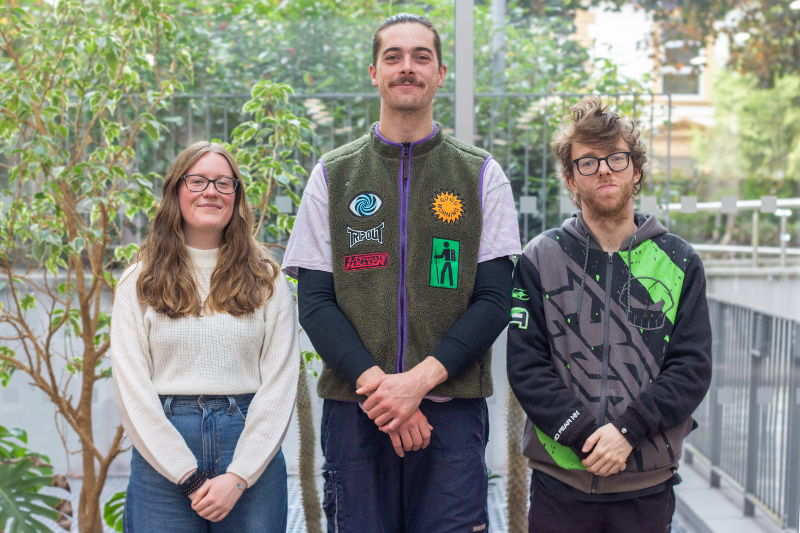Peer Mentor Scheme
Peer Mentor Scheme
The Peer Mentor Scheme helps new students settle into university life by connecting them with trained, experienced students who have already navigated the transition to Higher Education. The scheme aims to make starting university smoother and less overwhelming by providing structured, friendly peer-to-peer support within the School.
Our Peer Mentors are committed, reliable, compassionate, approachable students from a wide variety of backgrounds. They have volunteered to take on this role because they want to help students during their transition year into university. All peer mentors are available to chat to, regardless of their own degree pathway.
The scheme is overseen at School level by a designated Coordinator, and all mentors receive training delivered through the Learning Development Service.

Peer Mentors 2025/26
The UG Peer Mentors are Niamh Menzies (Zoology) , Conor Doherty (Biological Sciences), Daniel Kennedy (Zoology) and Alannah Shepherd (Food Science and Nutrition).
The PGR Peer Mentor is Eva-Leanne Thomas.
Get in Touch - Get in Touch
Information for Mentors
This is a fantastic opportunity for students in the School of Biological Sciences to give back by supporting new Stage 1 students as they begin their university journey. Participation in the scheme also counts towards the Future Ready Award.
Recruitment opens early in Semester 2. Mentors work in a voluntary capacity and must be committed to the role. Successful applicants will receive full training to prepare them for the role.
-
What does it entail?
Application and selection process
Submit an application and attend an informal interview (more of a chat really!). If successful, be formally accepted onto the scheme.Peer Mentor training
Complete the required training delivered by the Learning Development Service (LDS) to prepare you for the role. This is usually delivered at the end of May/early June.Students do not have to prepare for this training and all relevant resources will be made available at each training session.
Engaging with new students
Meet and support incoming students during Welcome Week and through School-based meetings, drop-in sessions, events, and ongoing peer-to-peer contact.The first and most important mentor task will be to meet with our new first-year students at the Welcome Day event in September.
Students who take on the role of a Peer Mentor may use the experience to apply for the Future Ready Award. The award can be achieved either through Peer Mentoring alone or by combining Peer Mentoring with another approved activity, depending on your chosen level of engagement. Full details on both routes can be found here: Future Ready Award | Peer Mentoring
- Who can apply?
All level of students can apply to be a peer mentor, from undergraduate to postgraduate.
- How to apply?
Recruitment opens early in Semester 2. To show your interest in becoming a peer mentor please complete the Peer Mentor Expression of Interest Form.
- Past Students Feedback
“I chose to be a Peer Mentor because I found them really useful when I was in first year. It was really easy to ask questions that you wouldn't really ask professors because you might think they're stupid but when you're a mentor no question is stupid ever.
I found being a Peer Mentor really enjoyable because I met loads of other students, including students I didn't know in my own year. It also helped my organisation skills and my communication skills.
I'd say just do it because it's a great experience. It also gives you a future ready award which is handy when you're graduated and it's a really easy way to network and meet new people.”
Annie Ní Néill
BSc Biological Sciences
